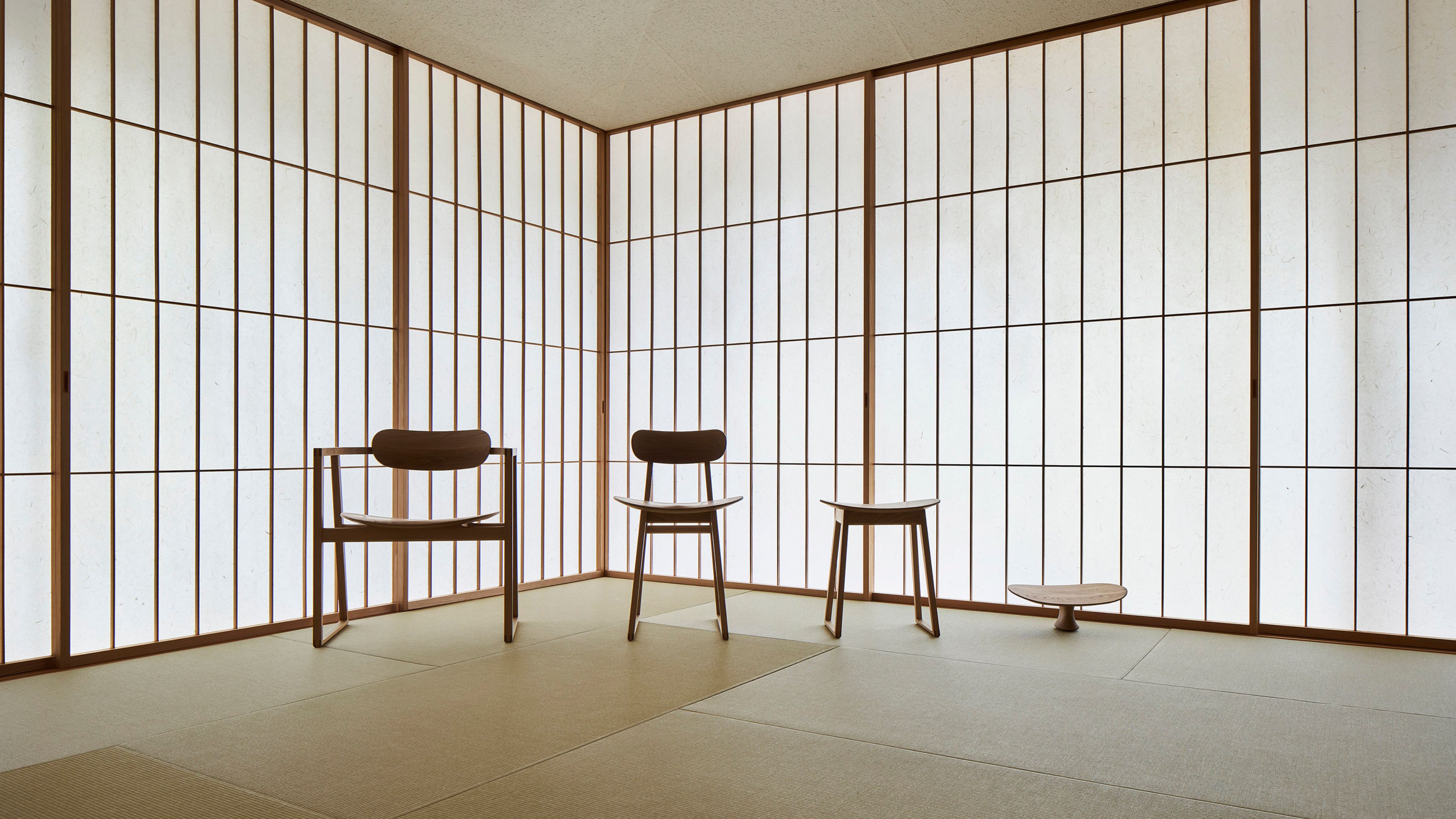
Chairs might just be my favorite aspect of home decor, and the lineup at this year’s New York City Design Week certainly did not disappoint. I think of seats a bit like dogs — sure, a Great Dane and a Maltese are part of the same species, but they look nothing alike.
From chairs crafted from fallen tree remnants to ones that seemingly defy gravity, I was dazzled by the variety of trends at NYC Design Week. I suspect you’ll feel the same. So, without further ado, here are my favorite seats I spotted around the city. None of them look anything alike — and that’s exactly the point!
1. One Page by Ron Arad
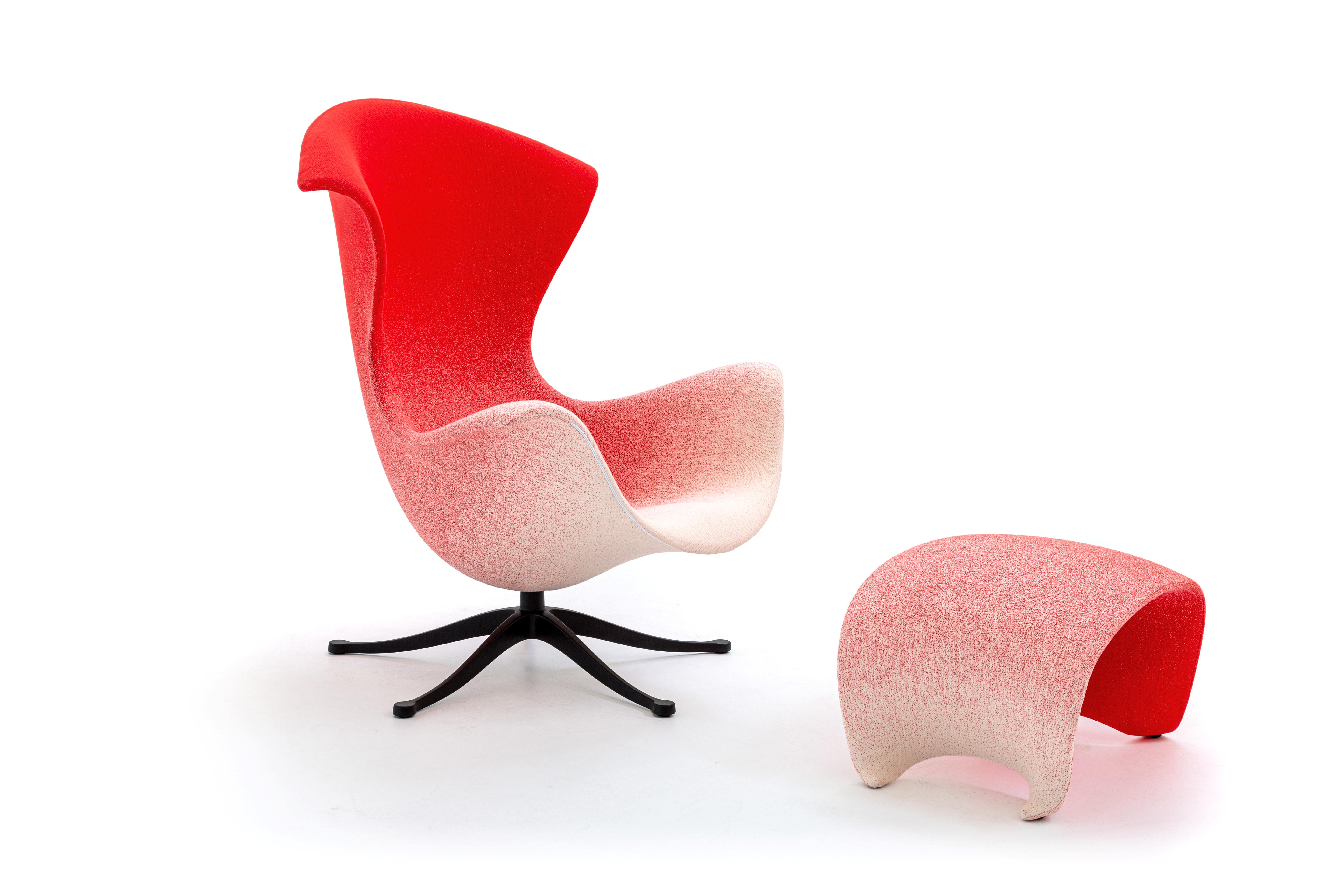
Just when I think the chair wheel can no longer be reinvented, an innovative design emerges that is so unique, so spectacular that it falls into a lane of its own. This is precisely how I feel about the One Page chair designed by Ron Arad in collaboration with artisanal design brand Moroso.
Best described as experimental, this armchair was inspired by a single sheet of paper in motion, hence its seemingly kinetic, almost wind-blown design. Its polyurethane "sheet" forms a continuous, soft, and flexible sculptural shape atop a rigid frame, eliminating the need for cushions or internal padding. Yet, it remains comfortable thanks to its expertly crafted, ergonomic design.
The result is a harmonious and futuristic seat, perched on a point-star swivel base that looks like it belongs in a spaceship — or at least on the set of a chic sci-fi editorial shoot. It comes in a variety of intriguing colors and textures, from leather to fur, but my favorite has to be the ombre gradient in red — so striking.
2. Catifa Carta by Arper

Arper’s iconic Catifa 53 chair, originally designed in 2001, received a stunning upgrade at this year’s NYC Design Week with the introduction of the Catifa Carta — a sustainable version of the sleek, bi-curved silhouette we all know and love. Made from a new material called PaperShell, a composite wood byproduct, this chair is both innovative and eco-friendly. I had the chance to see how this remarkable material and chair are created.
The process begins with collecting timber waste from fallen trees, which is then transformed into a paper pulp. Bolstered by a 100% biogenic hemicellulose-based binder, the pulp mixture becomes 'kraft paper,' layered and pressed repeatedly until it forms the finished shell of the Catifa Carta. The result is a stable biochar, thanks to a low-oxygen burning process that, like a tree, sequesters carbon, resulting in a beautiful black hue. And if you ever decide to part with the chair (though I can’t imagine why), you can mix it with soil, turning it into a home for mycelium and microbes, thus restarting its lifecycle.
While the science behind the Catifa Carta might be complex, its design is refreshingly simple. Who’d guess that the shiny black seat was once a tree? It certainly makes for a killer conversation starter.
3. Ruff by Patricia Urquiola
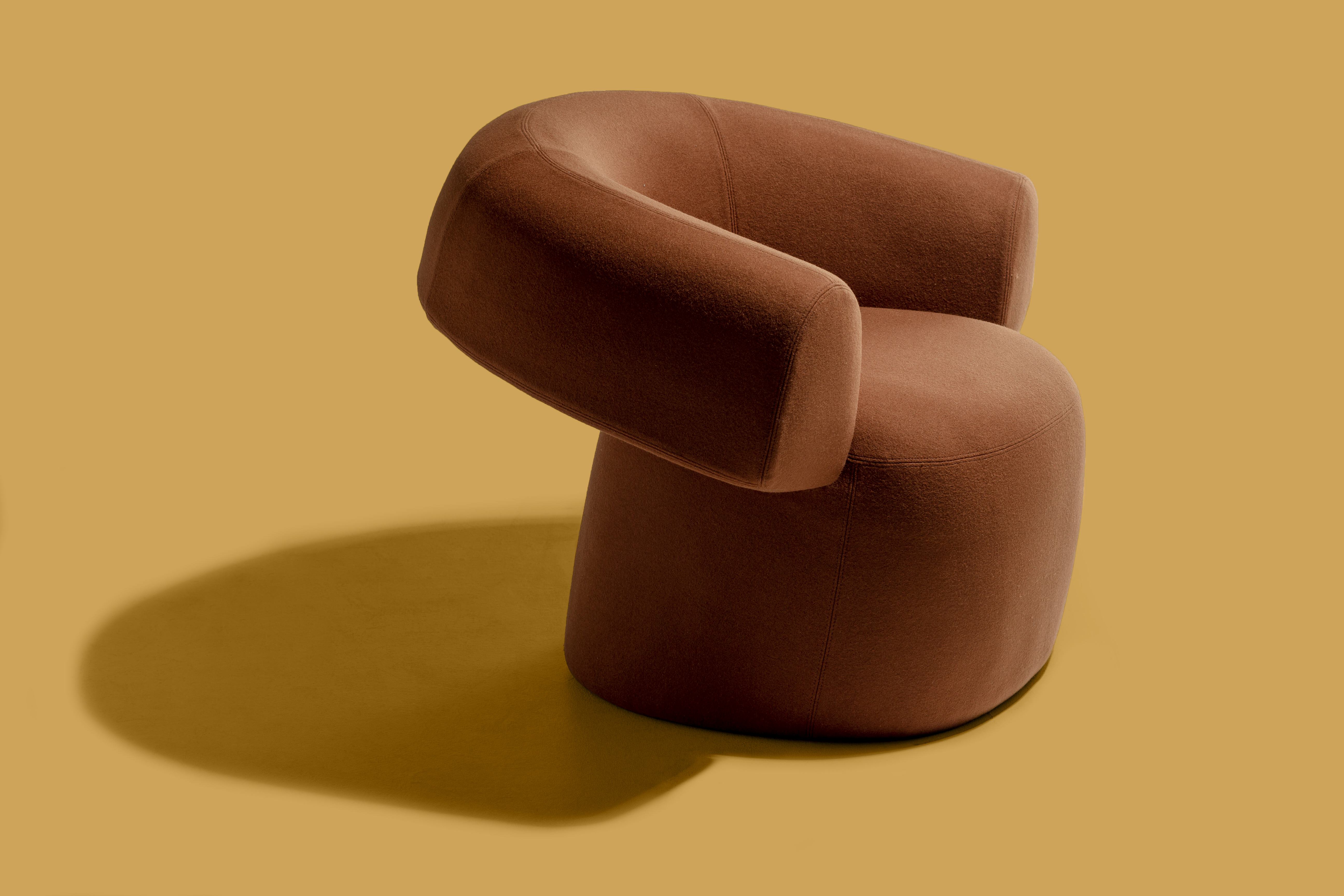
Like One Page, the Ruff chair was also created in collaboration with Moroso, but this time designed by Spanish architect and industrial designer Patricia Urquiola. Featuring ultra-wide arms that almost seem to wrap around and hug its seat, it’s the perfect chair to bring comfort to your living room — a cozy spot to relax with a good book and a cup of tea.
Ruff is a delightful paradox of curved and straight lines, blending elegance with its seemingly gravity-defying silhouette and the practicality needed for everyday life. It's no surprise this conversational chair was designed by an architect, given its expert use of geometry, or that its plush construction was intended for the contract and hospitality sectors.
I imagine a Ruff sitting in the lounge of your favorite 5-star hotel — equal parts eye candy and a design-forward remote work seating spot you might never want to leave.
4. Low Back Metal Windsor Chair by Nickey Kehoe
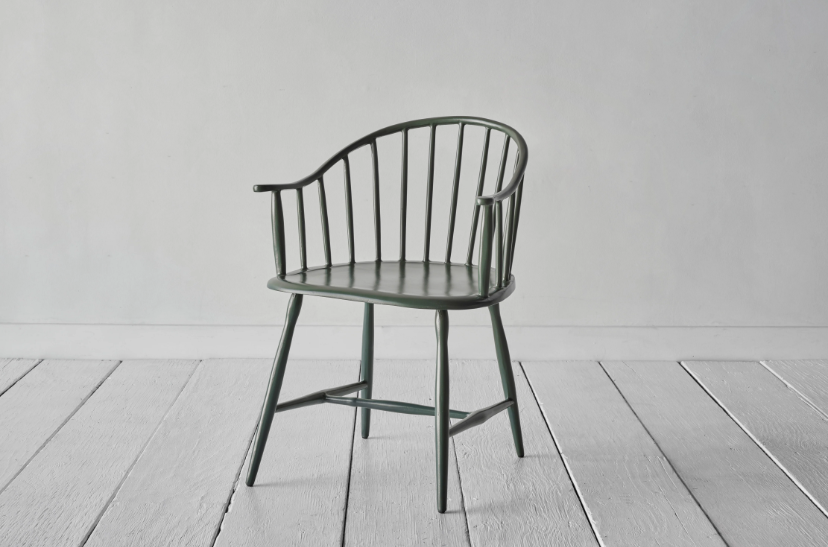
Nickey Kehoe’s Design Week event stood out from the traditional exhibition format — in the best way possible. It marked the opening of the LA-based design brand's first East Coast location, a two-level, 4,000 square foot space that formerly belonged to American painter Jackson Pollock.
Equal parts showroom and homeware shop, the space was filled with worldly household objects, furniture, and decor. Amidst the artisanal soaps, tea towels, spirited guests, and a purple and teal checked reed bag (which I’ll be returning for later), one extra-special piece caught my eye: the Low Back Metal Windsor Chair. At first glance, it resembles a classic Windsor Chair, but closer inspection reveals it’s made of cast aluminum, expertly hand-welded, brushed, and painted. The natural irregularities and substantial weight give it an almost organic appeal — the sort of artisanal quality you’d expect from Nickey Kehoe.
The Low Back Metal Windsor Chair's low gloss finish makes it equally suited for indoor or outdoor use. It works beautifully as a summer dining chair or as an accent piece for an outdoor living room, and it can easily transition indoors when the party moves inside. I’ll admit its charm doesn’t fully translate in photos, but in person, it’s a showstopper. Available now for $850, I’ll go out on a limb and call it a must-have.
5. Suwari by HIDA
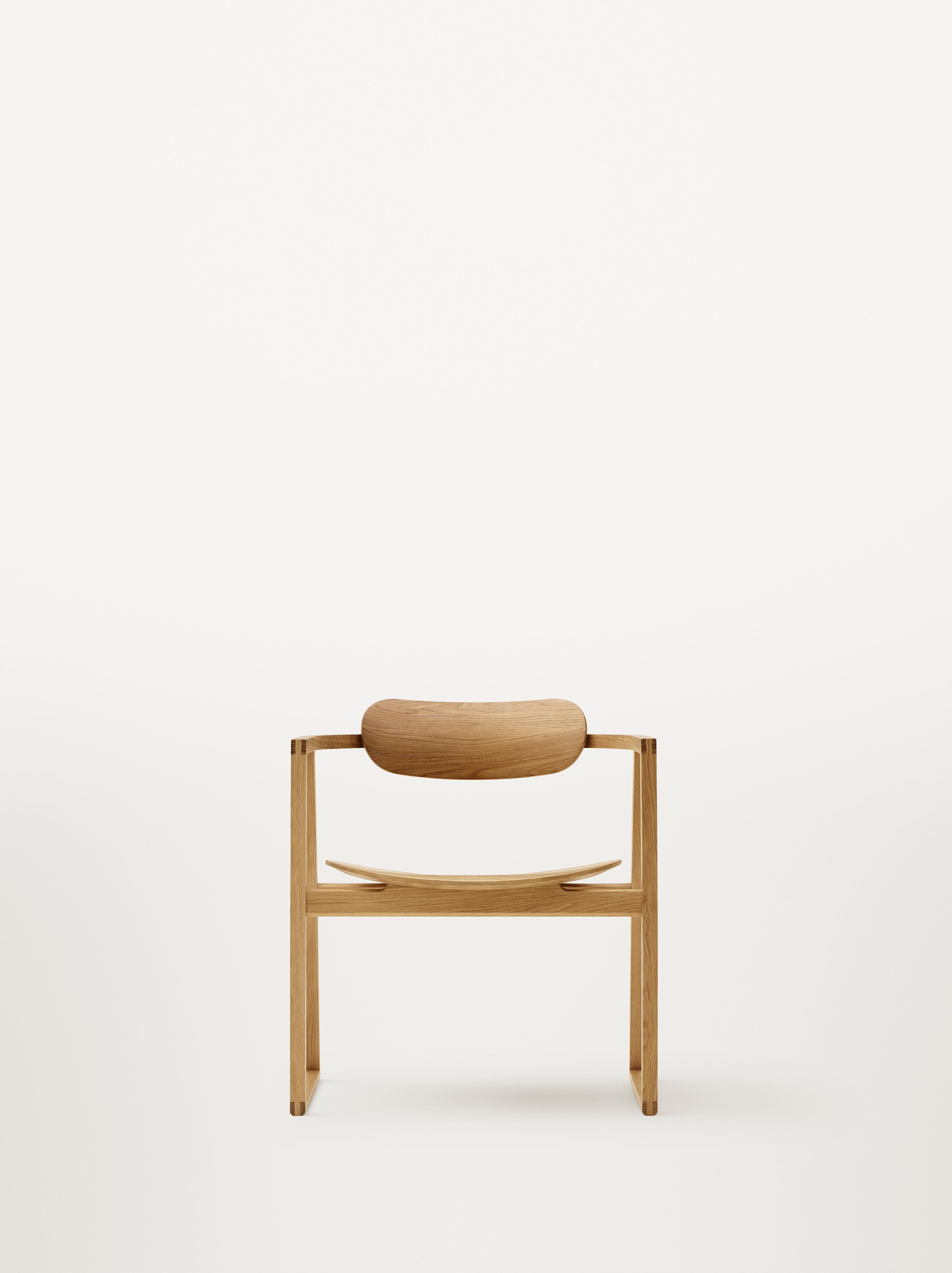
HIDA is one of the oldest wooden furniture companies in Japan, so it was only natural for it to collaborate with New York-based Studio Guapo and Pink Essay on Suwari, a lineup of wooden chairs. It's a masterful composition of vertical and horizontal lines, with each seat demonstrating Japanese sensibilities.
The aim of the Suwari chairs is to avoid burdening the floor, transforming the act of sitting into a harmonious, comfortable experience in dialogue with the rest of the room. What I found particularly interesting about all the seats, especially the Suwari Lounge Chair (pictured), is not what is present, but what is intentionally left out.
With no back, the chair offers an unobstructed visual line — more a suggestion of a chair than the chair itself. To me, this is minimalism at its finest.







